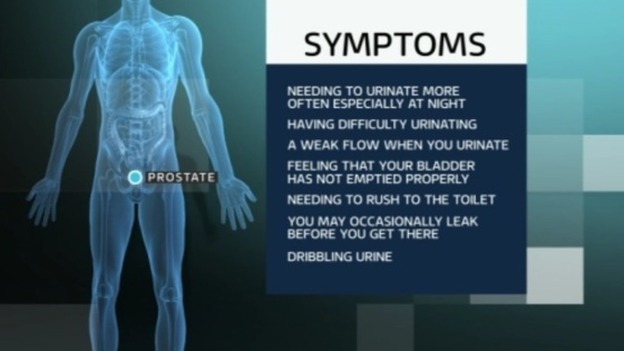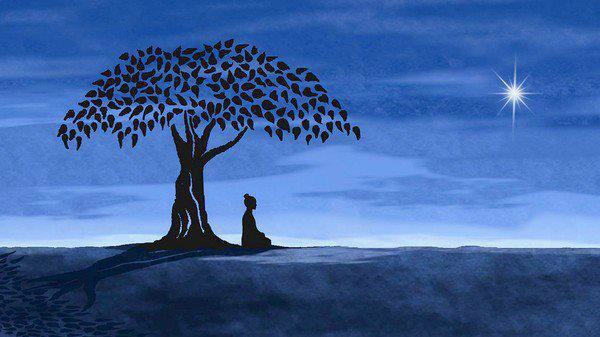
Do you know how healthy is your POOP
May 10, 2018
Rudraksha-The most potent Spiritual weapon on earth
May 10, 2018In this article, I bring to you a risk all men face. Prostrate problems- and that’s because all men have a prostate. Youngsters need to be not only aware but also take precautions in their youthful years to eliminate the risk and elderly and their caregivers need to know everything about how to handle the challenges.
Benign Prostate Hyperplasia (BPH). BPH, also known as an enlarged prostate, is the growth of the prostate gland to an unhealthy size. As a man advances in his age, his chances of having BPH, enhance several times. As diet plays an important role in managing BPH, hence this article will share thoughtful insights in diet management, while addressing BPH challenges.
A question asked frequently- Is prostate strictly for men? My answer is Yes, ONLY men have prostate challenges and only Men who cross the 40 years age mark have a risk of BPH.
So what is Prostrate
Everyone has a pair of kidneys. The job of the kidney is to remove waste. It’s the natural waste management company within our body. Every minute your blood passes through the kidney several times to be filtered. As the blood is filtered, urine is formed and stored in a temporary storage tank called the urinary bladder. If there were to be no urinary bladder, as a man walks on the road, urine will be dropping.
Now think of the plumbing work in your house. Think of the urinary bladder as the overhead storage tank. From the storage tank, run pipes to other parts of the house. Our creator in His wisdom ran pipes from our urinary bladder to the tip of the penis. The pipe is called the urethra. Just below the bladder and surrounding the urethra is a little organ called the prostate gland, which acts like a tap, not allowing free flow of urine.
The size of the prostate gland is like a small walnut and weighs about 20 grams. After age 40, for reasons that range from hormones, stress and other lifestyle-related causes, the prostate gland begins to enlarge. From 20 grams it may grow to almost 100 grams. As it enlarges, it squeezes the urethra and the man begins to notice changes in the way he urinate. 
At a younger age urine comes out like a strong jet, however after 40 urine stream is weak and cannot travel a long distance. Though not many men will be worried their urine stream cannot hit the ceiling but they can be warned about their prostate problems ahead of them as the weak stream is a strong symptom.
Terminal dribbling problem
Sometimes after urinating and repacking, you may see that urine still drops on undergarments. This is the reason why after an older man urinates, he has to ring the bell. A younger man simply delivers to the last drop and walks away. Just see an older man coming from the bathroom. Sometimes he may clutch the newspaper closely to hide the urine stains, particularly on plain colored trousers.
It takes longer to start
At this point, you wait longer for the urine flow to start. There are 2 valves that must open for you to urinate – the internal and external sphincters. Both open but because of obstructions in the urethra, you wait long for the flow to start.
Incomplete emptying
You may have this feeling immediately after urinating that the bladder is not fully empty. In the process, the bladder begins to work harder to compensate for the obstruction in the urethra. The frequency of urination goes up. Urgency sets in. sometimes you have to practically run into the toilet. Nocturia also becomes common. You wake up more than 2 times at night to urinate.
Complications set in
As most men might not share their challenge to anyone even at this point, more serious complications start. Stored urine gets infected and there may be burning sensation when urinating.
Stored urine forms crystals. Crystals come together to form stone either in the bladder or in the kidney. Also, stones may block the urethra.
Chronic urinary retention sets in. The bladder stores more and more urine. An average bladder can store about 500-600 ml of urine, however, due to prostrate constricting the urethra entire urine is not empties and bladder starts storing up to 3 Liters of urine, which is dangerous. An overfilled bladder may leak and this leads to wetting / urinary incontinence. Also, the volume may put pressure on the kidney and may lead to kidney damage.
Mostly men wake up to the problem when one morning they wake up to find they are unable to pass urine at all.
Insights shared here to shed light on prostate enlargement, technically called benign prostate hyperplasia. however, there are two more challenges of the prostate:
1. Prostatitis – inflammation of the prostate
2. Prostate cancer – cancer of the prostate.
Managing Prostrate problems smartly
Born as men we have some good news and some bad news. The bad news is that every man will encounter prostate enlargement if he lives long enough.
The good news is that there are lifestyle changes that can help the man after 40 to maintain optimum prostate health.
With balanced and healthy Nutrition
Eat mindfully. The US National Cancer Institute, states that 33% of all cancers are related to what we eat.
Eating red meat triples your chances of prostate disease. Milk every day doubles your risk. Little or no taking fruits/vegetables daily increases risk by almost four times.
Eating tomatoes daily can be very healthy. Tomato has loads of lycopene. Lycopene is the most potent natural antioxidant.
Foods rich in zinc should be consumed regularly. Eat Pumpkin seeds who carry a wide variety of nutrients ranging from magnesium and manganese to copper, protein, and zinc, pumpkin seeds are nutritional powerhouses wrapped up in a very small package… Zinc is about the essential element for male sexuality and fertility.
Men need more zinc than women. Every time a man ejaculates he loses 15 mg of zinc. Zinc is also important for alcohol metabolism. Your liver needs zinc to metabolize alcohol.
Consume less Alcohol
Though alcohol directly doesn’t affect prostate health, however as men begin to have urinary symptoms associated with prostate enlargement, it is important they look at alcohol consumption. More fluid in means more fluid out. Drink less. Drink slowly.
Physical Exercise
Exercise helps build the muscle tone. Every man should exercise. Men over 40 should avoid high impact exercise like jogging. It puts pressure on the knees. Cycling is bad news for the prostate. Recommended activity is brisk walking for at least 45 mins daily.
Avoid sitting for long duration
When we sit, two-thirds of our weight rests on the pelvic bones. Men who sit longer are more prone to prostate symptoms. Do not sit for long hours. Walk around as often as you can. Try sitting on ergonomically designed chairs which offer comfort and rest.
Avoid tight undergarments
Men should avoid tight underwear. It impacts circulation around the groin and heats it up a bit. While the physiological temperature is 37 degrees, the groin has an optimal temperature of about 33 degrees. Wearing boxers is a good idea for prostate patients and also in general. Wear breathable clothing.
Regular Sex
Regular sex is good for the prostate.
Celibates remain at a higher risk of prostate illness. Celibacy is a moral decision, but not a biological adaptation. Our prostate gland is designed to empty its contents regularly.
Attend to the problem early
It is always a good advice to be careful and alert to any changes you identify in the way you urinate. Expert medical heal and regular exercise with a balanced diet can keep your challenges far far away.

About the Author
Dr. Amitabh Singh is the founder of AadyantaLife and Bio-Energetic & Crystal Healer and Wellness Coach. He provides Alternative and Complementary Healing therapies to difficult ailments including Cancer. He specializes in Mindfulness Meditation Coaching for Corporate and Business Leaders. His thought-provoking Enlightening Lectures.




